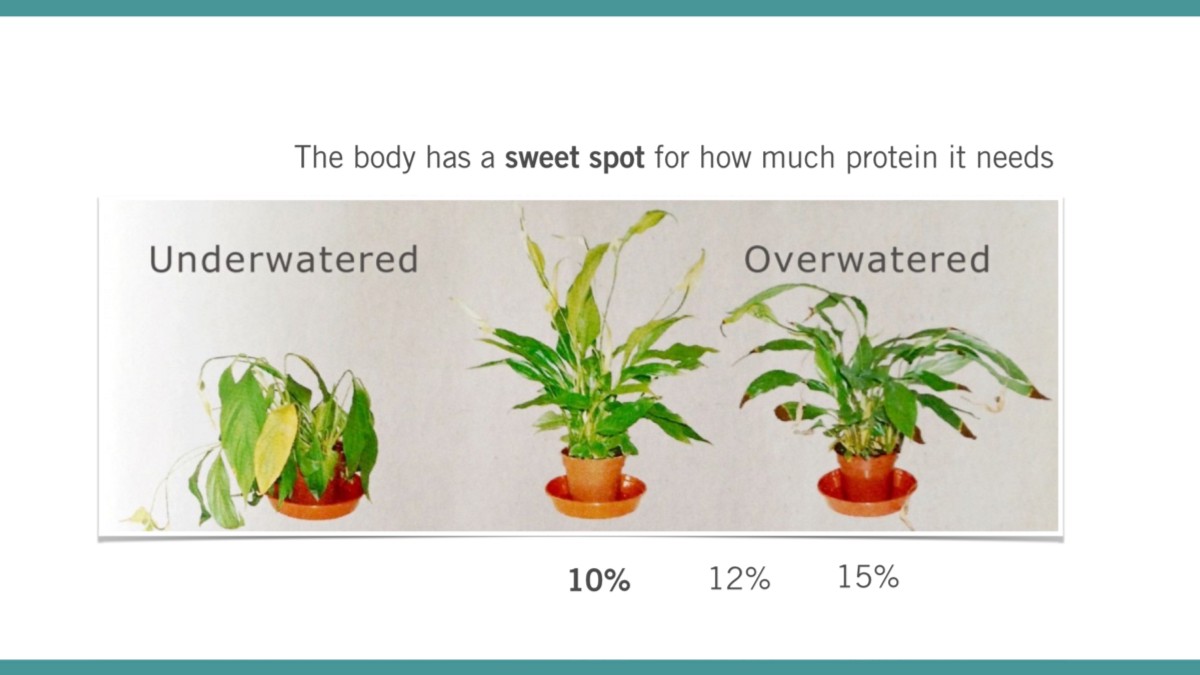By Chris Castiglione
The body has an optimum percentage of protein that it needs each day.
Think of it like a sweet spot that you want to hit. Let’s use a houseplant as a metaphor.

If you’ve overwatered a plant you know what that’s like—it looks pretty nasty. And if you under water it? Also not good. But there’s an optimal amount of water ever plant needs to be healthy — and that’s what we’re talking about, the optimal amount of protein you need to stay healthy.
What happens when you exceed that amount? Over time your body is more prone to disease (in the research they specifically looked at cancer, heart disease, obesity, and autoimmune diseases).
The Big Payoff: Not all proteins are alike
In the China Study, author T. Colin Campbell explains, “plant protein did not promote cancer growth, even at the highest levels of intake.”
To summarize, the 10% threshold for protein I mentioned is exclusive to animal based proteins, and therefore if you eat a plant-based diet you’re much less likely to promote disease in the same way animals proteins do.
Perhaps I’m oversimplifying the study a bit (in that there is some context missing as to which specific types of protein were tested, and how and when these reactions occurred), but the higher level takeaways are:
1. There is an optimum level of protein your body needs.
2. Not all proteins are alike. Animals proteins tend to have an “overwatering effect,” leading your body into disease, whereas plant proteins don’t contribute to the overwatering effect.
Learn More
If you’re in New York, join Chris Castiglione for his talk on plant-based nutrition at the NYC Vegetarian Food Festival on Saturday March 14th, at 5:00pm on the Apple Stage.
Learn more about The China Study right now by going to the site: chinastudydiet.com, where you can watch his free 30 minute video class on how to eat healthy on the China Study Diet.
More about Chris Castiglione can be found at castig.org and on Twitter @castig.
